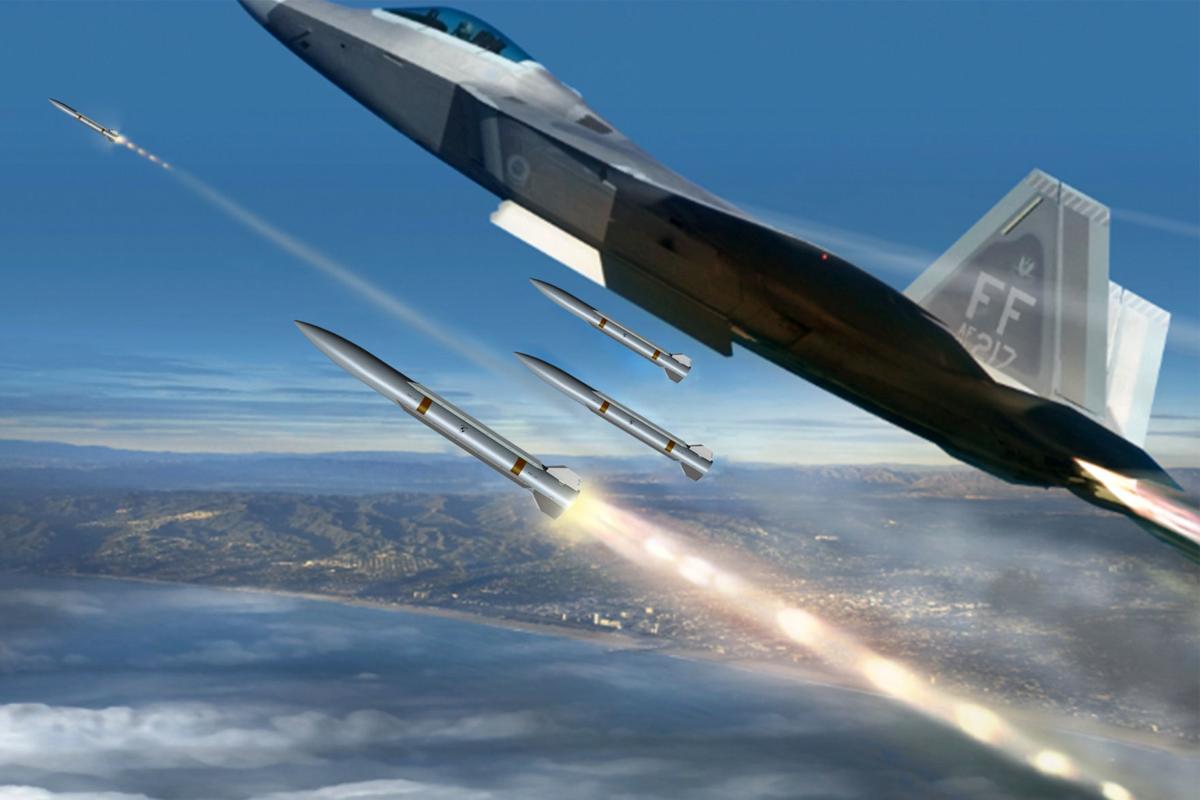Tucson-based Raytheon Missile Systems is developing a new medium-range, air-launched weapon it says is half the size and cost of today’s air-to-air missiles but delivers greater range and effect.
Raytheon on Monday said its new Peregrine missile is a small, fast, lightweight air-to-air weapon “for use against drones, manned aircraft and cruise missiles.”
The news comes as the nation’s longest-range air-combat missile, Raytheon’s Advanced Medium Range Air-to-Air Missile (AMRAAM), is expected to be phased out of the U.S. arsenal in the next three to five years.
AMRAAM is one of the biggest programs at Raytheon Missile Systems, the Tucson region’s biggest employer with more than 13,000 workers.
Raytheon said the new, smaller Peregrine missile is faster and more maneuverable than current medium-range, air-to-air missiles, and allows double the number of weapons to be loaded on a variety of fighter planes.
Without releasing details, Raytheon said the Peregrine’s “sophisticated, miniaturized guidance system” can detect and track targets at any time of day and in any weather condition.
“Peregrine will allow U.S. and allied fighter pilots to carry more missiles into battle to maintain air dominance,” said Thomas Bussing, Raytheon vice president for advanced missile systems. “With its advanced sensor, guidance and propulsion systems packed into a much smaller airframe, this new weapon represents a significant leap forward in air-to-air missile development.”
Bussing made the announcement as part of the Air Force Association’s Air, Space & Cyber Conference, under way this week in National Harbor, Maryland.
Raytheon said the Peregrine missile uses off-the-shelf military components, additive manufacturing processes and readily available materials to offer “an affordable solution” for countering current and emerging airborne threats.
Raytheon already is a leader in air-to-air missiles, having provided the AMRAAM and the shorter-range Sidewinder missile to U.S. and allied forces for decades.
While those missiles have been continuously upgraded with advanced capabilities, both Raytheon and Lockheed Martin are developing potential future replacements for the AMRAAM for the Air Force and Navy.
The Defense Department has been accelerating development of a longer-range air-to-air missile in recent years amid reports that China has developed a missile with a range of more than 150 miles.
The latest version of the AMRAAM, the AIM-120D, has a reported range of 99 miles and costs more than $1 million per copy. A program to develop a longer-range replacement was dropped in 2013.
In 2017, the Air Force revealed in budget documents it had been working on a classified program to develop a longer-range air intercept weapon, the Long-Range Engagement Weapon.
Raytheon reportedly has been working on designs for that program, but company officials were unavailable for comment on Monday.
Separately, Lockheed Martin is working with the Air Force to develop a longer-range AMRAAM replacement known as the AIM-260 Joint Advanced Tactical Missile, or JTAM, a senior Air Force official told Air Force Magazine in June.
Brig. Gen. Anthony Genatempo, Air Force weapons program executive officer, said the Air Force expects to begin fielding the JTAM by 2022 and buy its last AMRAAMs in 2026.
In March 2018, Raytheon won a $523 million contract to upgrade the guidance sections of AMRAAMs for the air forces of Japan, Kuwait, Poland, Indonesia, Qatar, Germany, Australia, and the United Kingdom.
A $573 million AMRAAM production contract Raytheon was awarded in 2016 was scheduled to be completed this past spring.





